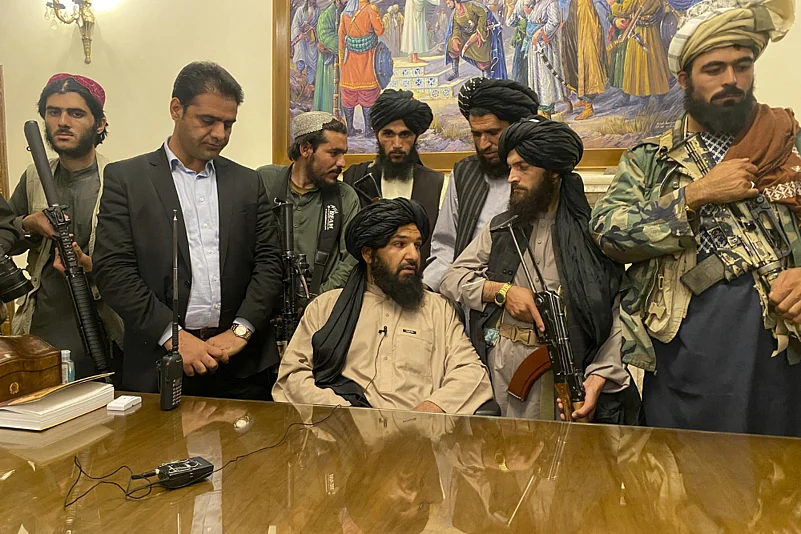The Taliban is finding it extremely difficult to balance its ideology with the pragmatic considerations needed to get the international recognition it desperately needs. Without that, funds are in short supply and humanitarian aid is not enough to kick-start the country’s shattered economy.
The Taliban has been demanding unfreezing of the $9.5 billion Afghan Central Bank funds held in the US. Washington is in no mood to relent without the Taliban honouring its earlier assurances to the international community. The red lines the international community, including India, have drawn are – ensure that terror outfits do not use Afghan soil against any country, have a representative inclusive government, respect human rights specifically women’s rights to education and employment.
The Doha faction of the Taliban, realising the importance of human rights to the world, has from the beginning emphasised that global powers need not worry as it would not repeat what happened during its previous tenure. But assurances and promises are far from the reality on the ground.
Life Not The Same Anymore
The Taliban's return has completely changed the lives of people, especially the women in the country. After twenty years of freedom, the position of women is back to square one in Afghanistan.
The ideologues and the pragmatists represented by the Doha faction are not on the same page on several issues. The Doha Taliban exposed to the international community know the score. Yet they are not in a position to challenge the authority of the more powerful section, consisting of the field commanders in the provinces as well as the main leadership of the conservative cleric Haibatullah Akundzada, a man rarely seen in public.
In the latest move on November 22, more restrictions on women are imposed. New guidelines issued by the Vice and Virtue Ministry dictate the dress of female journalists on television and prohibit soap operas and entertainment programs featuring female actors. . “These are not rules but a religious guideline," ministry spokesman Hakif Mohajir was quoted by the local press as saying.
Patricia Grossman, Asia Director at Human Rights Watch said that the ``Taliban’s new media regulations and threats against journalists reflect broader efforts to silence all criticism of Taliban rule.’’ She added, "The disappearance of any space for dissent and worsening restriction for women in the media and arts is devasting."
The media is coming under strict regulations to ensure that no critical reporting of the Taliban goes out to the people. The media especially women journalists are targeted often by the authorities. Reporters are required to submit all their writing for approval before appearing in print.
These actions by the Taliban government are making it hard for the international community to recognise the new government. Pakistan’s leaders who have been championing the Taliban’s case for recognition are finding it extremely difficult to convince the rest of the world. Pakistan itself, unlike during the previous regime has not formally recognised the new government, possibly fearing international repercussions.
Return To Total Patriarchy
Taliban leaders are from rural backgrounds where the tribal Pashtunwali culture is prevalent. Simply put, it is the tribal way of life where tradition, the place of women and the code of society is laid out. It is one of the family loyalties, feuds between families passed over from generation to generation, hospitality, revenge, and gun culture are also woven into the tribal ethos. Women’s place is at home, and deviation from that is not approved of, especially in rural areas. So it is not surprising that the conservative clerics who are now in control find it difficult to adjust to urban concepts of individual choice and liberty. But it is time the Taliban makes up its mind on what it stands for if it wants foreign funds to sustain the economy.
After taking over Afghanistan on August 15, the Taliban insisted that all women must cover their heads in public. The sale of burkhas soared as many had shed these traditional covers. Women were allowed to teach, but there was strict segregation of boys and girls in universities, with women able to teach only girls while the men lecture the boys. Instances of public flogging have come in from the provinces. But these are not as widespread as they were during Taliban rule in the 90’s. Thankfully public hangings are no longer the norm as they were in the first term.
Most women journalists and office workers in urban centres were asked to stay home and send male members in their place. Except for children in the primary section, girls are now being denied secondary education in many outlying provinces of the country. This has not yet happened in Kabul as the capital is under constant scrutiny by the international community but segregation remains in force.















